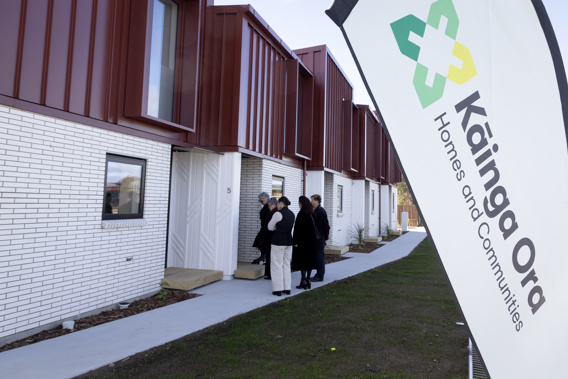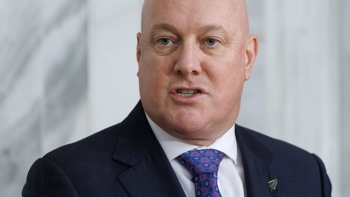
Overpaying on projects and properties, racking up huge amounts of debt, a lack of oversight on spending and neglect from the board have all been blamed by the Government for the results of an internal review into Kāinga Ora.
The review, led by Sir Bill English, released its findings this week to reveal the housing agency is not a financially viable organisation. The damning report confirmed its operation deficit is expected to blow out to $700 million by 2027 and debt is forecast to hit $23 billion.
The forecast cash requirement alone from the Crown over the next four years is $21.4b - and the organisation is incurring an interest bill of up to $10b.
As Prime Minister Christopher Luxon pointed out on Newstalk ZB this morning, $10b is more than what the Government spends on primary school education and police.
"So yep, we'd love to give police more money, but when you're doing dumb stuff like this then that's where it comes from - right?" he told Hosking.
Housing Minister Chris Bishop has made immediate changes in response to the review's findings. The board is set for a complete overhaul and a new chairman - Simon Moutter, the former boss of Spark and Auckland Airport.
However, Bishop only has the authority to change members of the board - he cannot interfere with the roles of any executives within the organisation, including Kāinga Ora CEO Andrew McKenzie.
On The Mike Hosking Breakfast this morning, Bishop was asked whether he blames the board or the executives more for Kāinga Ora's dire straits.
"It's partly a governance failure but it's partly a Government failure, by that I mean the last Labour Government," said Bishop.
"They gave Kāinga Ora easy access to debt and they pumped billions of dollars into the organisation."
As Bishop explained, in Budget 2023 the Labour Government invested a third of all new Crown capital spending over the next 10 years into Kāinga Ora. The organisation ended up receiving a bigger capital contribution than the amount allocated, in capital terms, to the North Island's severe weather events.
"That's how much money this organisation had and during that time, by the way, the social housing wait list has quadrupled."

Bishop then went on to say that since then, the previous Government gave the housing organisation a large agenda to complete. Kāinga Ora was given funding for progressive home ownership, first home grants, urban development and the infrastructure acceleration fund.
Kāinga Ora was also handed a massive remit, Bishop said, and the Government allowed the board to have "an insufficient focus on cost drivers", as well as insufficient focus on running the organisation efficiently and effectively.
He also pointed to examples found within the report that Kāinga Ora had been buying up land across the country for rates far exceeding the properties' value within the private sector. Bishop pointed to a story in the news recently about a hotel in Dunedin that the organisation purchased and left untouched for four years.
"That's just a small little vignette of what the organisation has been up to."
Later in the morning, Prime Minister Luxon stuck the boot further into the management of Kāinga Ora over the past six years - accusing the agency of "poor financial literacy" and calling its leadership abysmal.
Luxon said the board of directors didn't have a financial statement of financial position, which he believed should be one of the key things needed from a management team.
"When a board doesn't know to ask for it or see it then clearly there's a big, big problem," he told Hosking.
The Prime Minister also pointed to the lack of industry prudence on display, in overpaying for materials and building houses in an ineffective manner.
"If you talk to anybody in the construction sector ... they know that if you have to build a house with KO they're not leveraging the scale, they're not purchasing materials in the right way, they're being too broad and not consulting with communities, paying over market price - all that sort of stuff," said Luxon.
"It's another freaking mess we've had to pick up but the point is we are looking out the front windscreen, it's our problem now and we've got to solve it."
Community Housing Aotearoa Deputy CEO, Chris Glaudel, told Newstalk ZB the report isn't shocking, but contained a few surprises.
He said the most important thing was the report digging deeper into our overall social housing system and the issues at play. Among solutions to such issues would be the role that community groups such has his would play.
"I think what community housing organisations provide are those connections," said Glaudel.
"You have Māori organisations that are affiliated with local iwi that intimately know the area and the people. Community housing providers have often been providing other social services within a community for years or even decades, and they're part of the local fabric understanding what the local needs are and know those other social supports that can deliver better outcomes for individuals."
Take your Radio, Podcasts and Music with you









